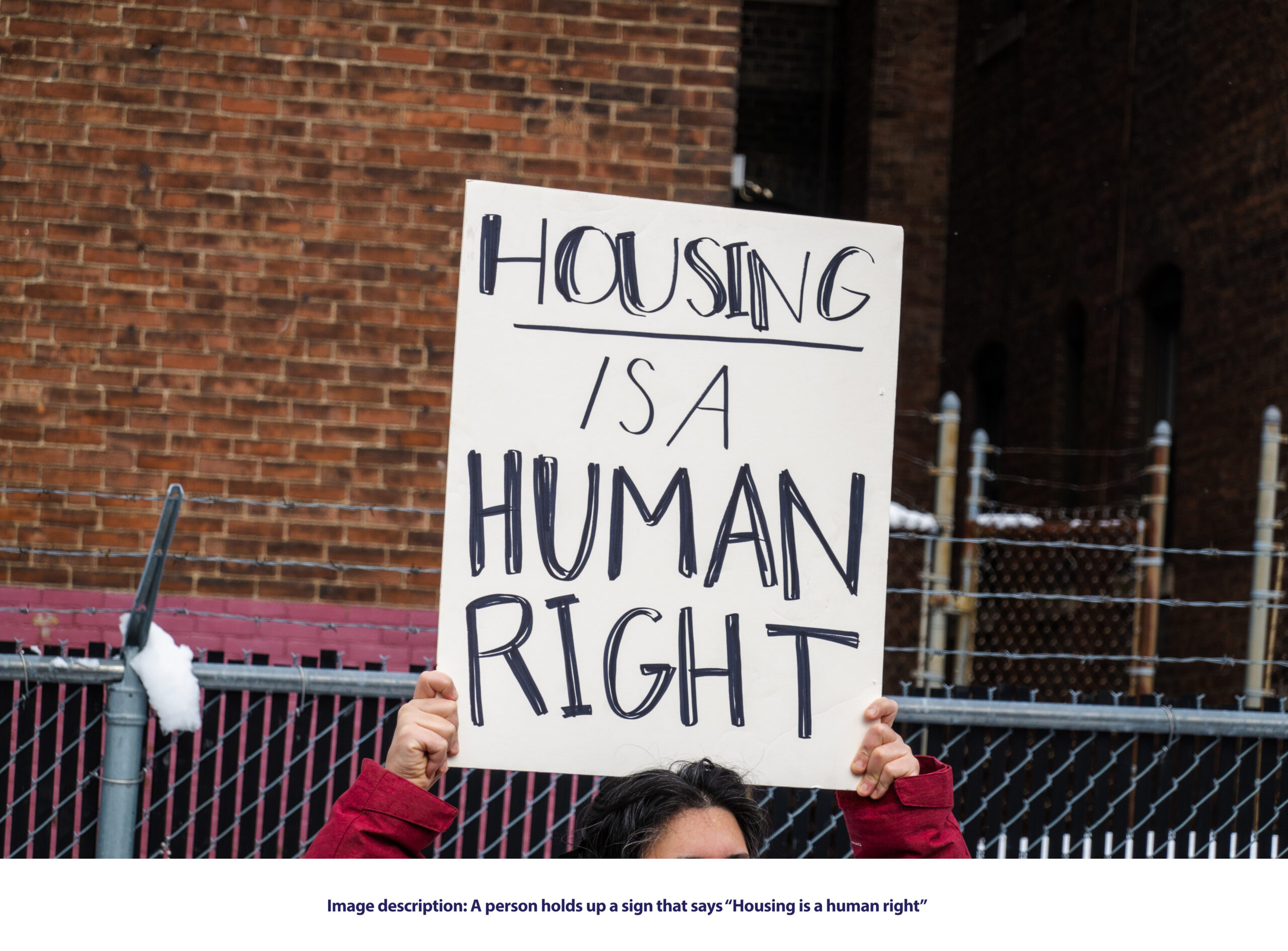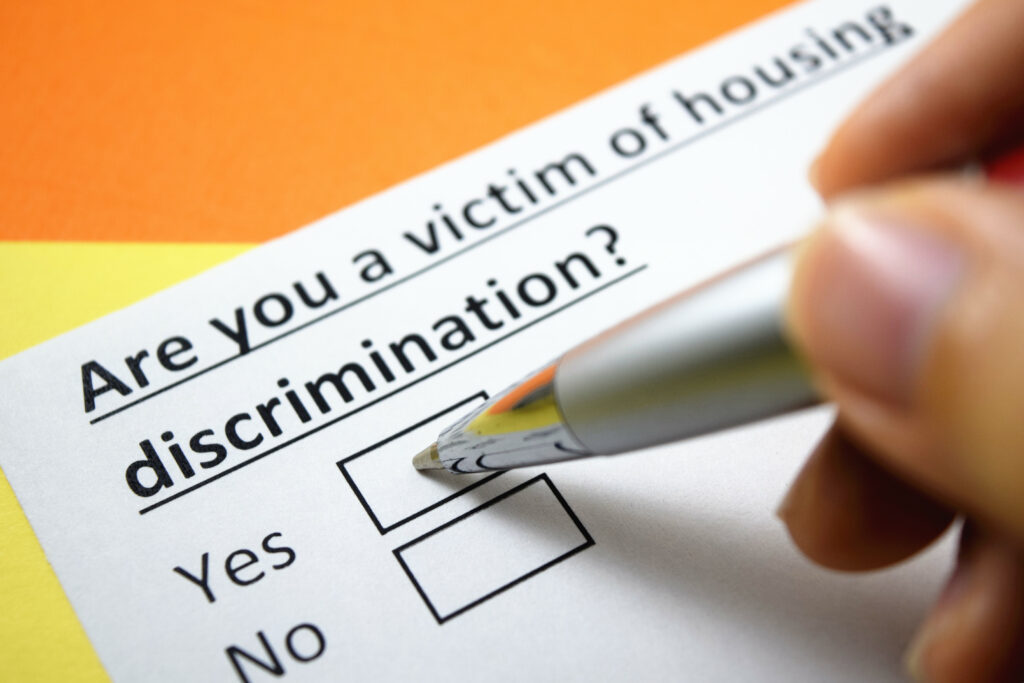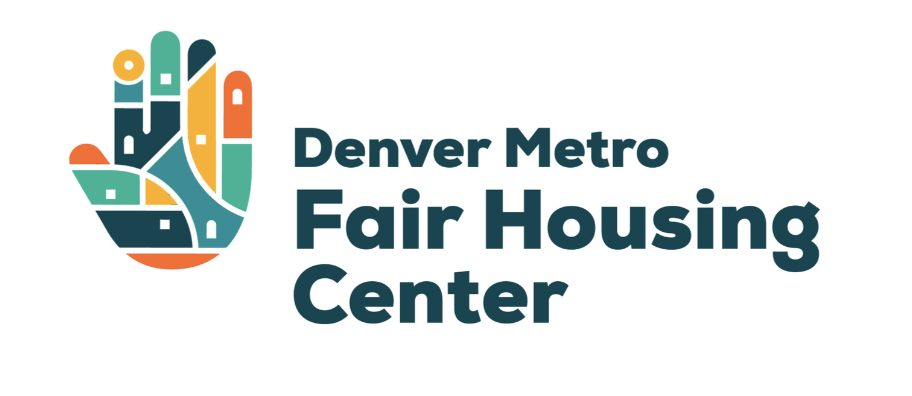

In Colorado, the battle against housing discrimination is ongoing. Despite legal protections put in place since January 2021 to outlaw income-based housing discrimination, income-based barriers and discrimination persist today. Those who rely on publicly-funded vouchers to secure housing often face housing discrimination in the form of high income requirements and refusal to accept vouchers for rent. With rents at all-time highs, and a shortage of affordable and accessible housing, discrimination can present formidable barriers for people with disabilities, unhoused persons, and low-income people who are wanting to live independently in their own home.
However, there is hope on the horizon. Newer legislation is addressing income barriers; and organizations like CPWD and others are providing education and assistance, as well as resources to fight housing discrimination. This week, CPWD will host a community forum to address the issues, and explore rights and responsibilities on both sides: tenants and landlords.
Income discrimination primarily affects those who rely on housing vouchers under programs like Section 8. Many individuals wait months, and sometimes even years, to obtain these vouchers, only to face discrimination when they try to use them. Discrimination takes various forms, including:

A person is answering question on a form about housing discrimination.
Discrimination based on source of income disproportionately impacts vulnerable groups, including the unhoused and those with disabilities. The Denver Metro Fair Housing Center has found that 82% of all housing voucher holders in Colorado live in households with at least one person with a disability. Additionally, many voucher holders are Black, Latino, or Native American, particularly in the Denver area. For individuals transitioning out of homelessness, discrimination against their housing vouchers poses an unnecessary barrier to secure and stable housing.
Colorado has taken steps to combat income-based discrimination and associated barriers through legislative efforts. House Bill 20-1332 , which went into effect in January 2021, outlawed housing discrimination based on source of income. This means that landlords with more than three rental units must accept housing vouchers, and using federal aid as a reason to reject tenants is no longer permissible.
Despite the legal protections, complaints about housing vouchers and landlords refusing to accept them persist. Housing advocates have played a critical role in strengthening laws to protect individuals. Senate Bill 23-184 , which took effect in August 2023, caps the minimum income requirement at two times the cost of rent, lowering the income-to-rent ratio barrier and increasing housing access for voucher holders.
While these legislative efforts aim to address sources of income discrimination, they have faced resistance from some landlords. The new law increases the income requirement for renters, allowing renters to spend up to 50% of their income on rent. Critics argue that this will lead to more defaults and drive up rents across the market. Some landlords argue that the issue could be better resolved by making the housing voucher program more economically attractive to landlords – increasing the value of vouchers – rather than mandating how landlords comply with potentially financially unfavorable rents and possible defaults.
Since the implementation of House Bill 20-1332 in January 2021, which prohibited housing discrimination based on source of income, many housing voucher recipients should have seen a decrease in such discrimination. However, according to the Denver Metro Fair Housing Center, complaints about housing vouchers and landlords refusing to accept them are still high. Over the past 18 months, refusal to accept vouchers accounted for approximately 30% of all housing discrimination complaints received by the center.

This is the logo for the Denver Metro Fair Housing Center
On April 25, 2023, the Campaign to End Discrimination Based on Source of Income was launched. The primary objective of the campaign is to put an end to housing discrimination against housing voucher holders and individuals with other public benefit sources of income. In collaboration with the Denver Metro Fair Housing Center, the campaign involves various endorsing organizations, including CPWD, which will undertake several key activities such as education sessions, social media outreach, media publicity, and community forums. The campaign is slated to run until November 20, 2023, during which collaborating organizations will assess its impact and consider further actions to combat housing discrimination in Colorado.
On Thursday, October 19, the Center for People with Disabilities will be hosting a no-cost community forum for the campaign from 5:30 – 8:00 p.m. Consumers will learn to assert their Fair Housing rights by:
Landlords and property managers will learn:
Presenters include:
Refreshments will be provided, and English/Spanish interpretation will be available. If you would like to request a reasonable accommodation (e.g. ASL interpreter, materials in a different language), please contact CPWD at 720-213-6293 or email [email protected].
While housing discrimination in Colorado persists, impacting vulnerable groups such as low-income individuals, communities of color, and people with disabilities, many of us are striving to overcome these barriers. Recent legislation has made strides in addressing some of the issues, but further efforts are needed to ensure fair housing for all residents. As education and awareness about housing discrimination increase, the goal is to see a decrease in the discrimination faced by voucher holders and the successful transition of more Coloradans to stable, secure housing. We hope to see you to share more on Thursday!